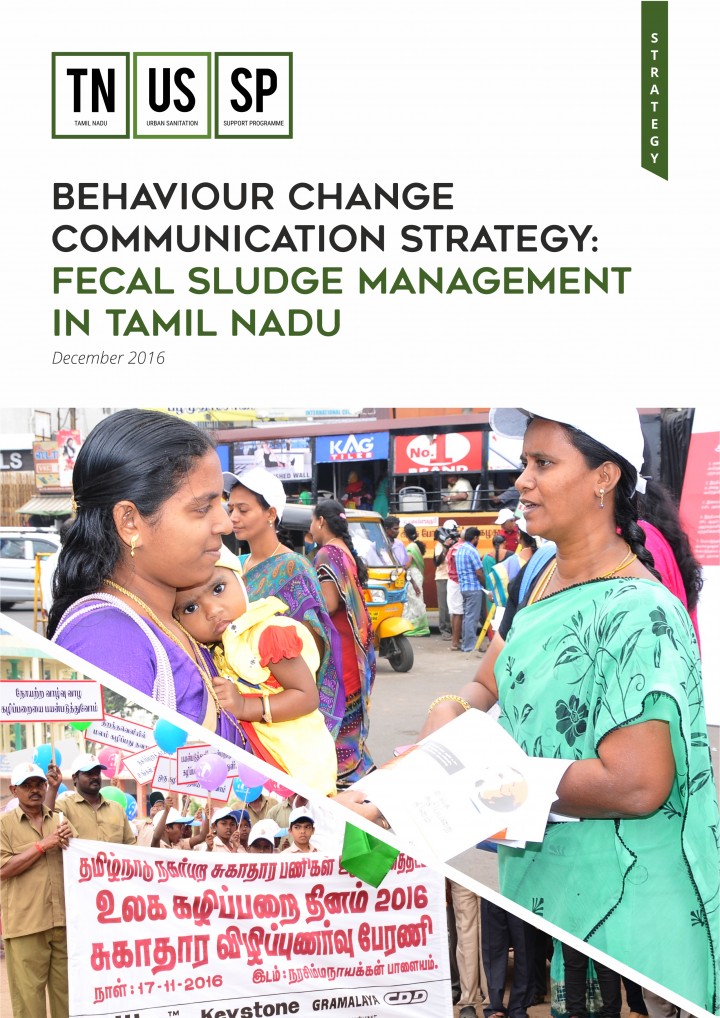
Published in: 2016
Pages: 64
Publisher:
Tamil Nadu Urban Sanitation Support Programme by Indian Institute for Human Settlements, Bengaluru, India
Author:
TNUSSP
Uploaded by:
Theodore Sam
Partner profile:
Indian Institute for Human Settlements
2032 Views
16 Downloads
Location of library entry
In Tamil Nadu, currently, a range of behaviour deficits exist along the full cycle of sanitation at the stages of access, containment, emptying, transport, treatment and re-use/disposal. However, communication strategies in the sanitation sector have been largely limited to promoting hygiene behaviours such as handwashing or stopping open defecation by promoting the use of toilets. While these efforts are important, there are several other behaviour modifications that need similar, if not more attention. This report summarises TNUSSPs Behaviour Change Communication (BCC) strategy, which consists of campaigns, events and materials to address multiple behaviour deficits along the sanitation chain. The strategy has been conceptualised to include segmentation and targeting of those who tend to embrace changes and newness (innovators and early adopters), evoke the benefits of new behaviour and the cost of current unsanitary practices, as well as to promote a positive, aspirational position to facilitate adoption of the new behaviour.
Bibliographic information
TNUSSP (2016). Behaviour Change and Communication Strategy. Tamil Nadu Urban Sanitation Support Programme by Indian Institute for Human Settlements, Bengaluru, India
Filter tags
East Asia & Pacific English















